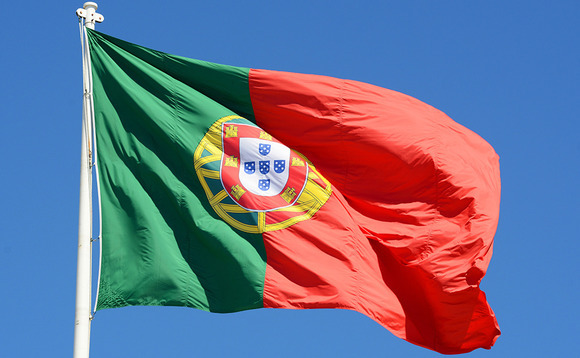
PE activity flourishes in Portugal as economy picks up

As the Portuguese economy continues its recovery from a long crisis, private equity houses are again turning their attention to the country. Alessia Argentieri reports
On the wave of its recent economic revival, Portugal has become an attractive destination for private equity investments from international and local firms looking to seize the opportunities offered by a vibrant market.
The interest from private equity houses has been primarily directed towards companies with strong exports, a solid internationalisation strategy and high growth potential. This has been reinforced by the improvement of macroeconomic indicators – a 2.7% rise in the country's GDP in 2017 and a 7.9% fall in unemployment in 2018.
"With the economic recovery and a higher level of confidence, we have seen a pick-up in M&A activity in the Portuguese mid-market," says João Coelho Borges, partner at Magnum Capital. "Numerous small- and medium-sized companies tried to overcome the deep economic crisis the country experienced with restructuring strategies and internationalisation efforts, which have now made them solid candidates for private equity funds."
According to Unquote Data, the Portuguese private equity market has recorded impressive growth in terms of value and volume in the past few years. Aggregate value across all deal types grew from €157m in 2014 to €686m in 2015 and reached a record €1.5bn in 2016, while the number of buyouts alone doubled from four in 2014 to eight in 2016. Data from 2017 is also very positive, showing an aggregate value of €1.2bn, six buyouts and a substantial year-on-year increase in the number of exits from two to eight.
Return of the mega-deal
Last year, the country saw its first mega-deal since 2008, with the €1bn buyout of Novo Banco, inked by US firm Lone Star. It also saw the €70m acquisition of Gascan by Spanish GP Artá Capital. "Portugal is developing a more competitive, sustainable and internationalised economy, and the country's growth is expected to accelerate further, attracting more investors," says Juan Ybáñez Rubio, partner at Artá. The Spanish GP closed its second fund on its €400m hard-cap in February and is considering investing some of that capital in the country.
A relatively large secondary buyout took place in February 2018, when Spanish GPs Magnum and Alantra bought Portuguese company Roq from Explorer Investments, each acquiring a 44% stake in the business, in a deal valued at around €150m.
Says Magnum's Borges: "90% of Roq's revenues come from international markets, including the US and Asia, and its management team reinvested with us, showing its commitment and confidence in the future evolution of the business." The GP, which has been investing in the country since 2008, is understood to be considering two possible targets in Portugal in the coming months, and will probably raise a third fund in 2018 to invest in Iberian companies.
In addition to these larger deals, the Portuguese private equity sector has also shown a rise in growth capital investments and smaller transactions.
Portugal has a scarcity of capital, but strong intrinsic potential in numerous economic sectors that can be stimulated by private equity investments" – Isabel Duarte Lima, HCapital
Says Atena Equity Partners founding partner João Rodrigo Santos: "Significant private equity dry powder, a perception that Portugal presents lower valuations, and government-backed initiatives to foster industry may have contributed to the increase." Atena is currently raising capital from several international investors to launch a new fund with a €75m hard-cap in June 2018.
As a general trend, the industry has moved from distressed transactions to growth capital investments and larger deals, including management and secondary buyouts. It has also recorded a rising number of exits, signs of a market that is becoming more developed and mature. Furthermore, some industry experts have noted that the sector is experiencing an increasing use of non-equity facilities, mostly subordinated debt.
"Portugal has a scarcity of capital, but strong intrinsic potential in numerous economic sectors that can be stimulated by private equity investments", says Isabel Duarte Lima, founding partner at Portuguese GP HCapital, which is planning to raise a new fund at the end of 2019 to invest in Iberian companies.
A positive influence on the development of the local private equity market has also come from new laws recently approved to transpose the EU AIFMD directive into national legislation, introducing several improvements for the sector, especially in terms of fees, disclosure, transparency, risk management and compliance.
Latest News
Stonehage Fleming raises USD 130m for largest fund to date, eyes 2024 programme
Sponsor acquired the public software group in July 2017 via the same-year vintage Partners Group Global Value 2017
Stonehage Fleming raises USD 130m for largest fund to date, eyes 2024 programme
Czech Republic-headquartered family office is targeting DACH and CEE region deals
Stonehage Fleming raises USD 130m for largest fund to date, eyes 2024 programme
Ex-Rocket Internet leader Bettina Curtze joins Swiss VC firm as partner and CFO
Stonehage Fleming raises USD 130m for largest fund to date, eyes 2024 programme
Estonia-registered VC could bolster LP base with fresh capital from funds-of-funds or pension funds









